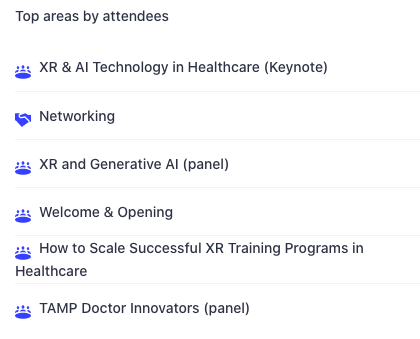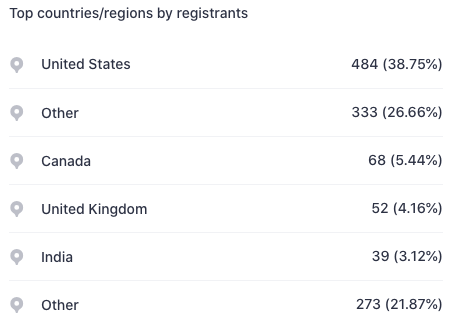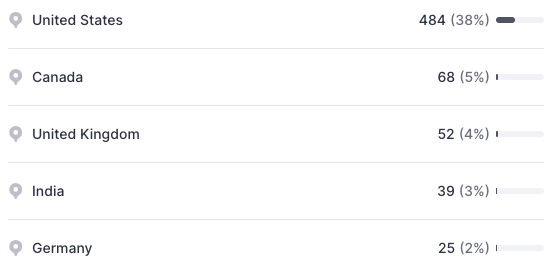Please join us in welcoming Tess McKinney to our Healthcare Industry Committee!
Tess McKinney serves as the visionary leader behind XRenegades, a subsidiary of Firework Media Studio, LLC. Renowned as an industry-leading consulting studio, XRenegades specializes in Immersive Virtual, Augmented & Mixed Reality (XR), 360 Degree Tour Design, Technology Training, and VR/AR/XR Reselling, particularly tailored for the education and healthcare sectors. With an impressive two-decade tenure in the technology industry and a fervor for innovation, Tess has established herself as an expert in the field of immersive technology.
Her LinkedIn profile showcases a rich tapestry of connections that span industry leaders, innovators, and thought leaders in XR/VR/AR/AI, healthcare, and education. Tess leverages this extensive network to stay abreast of the latest trends, developments, and collaborative opportunities in these rapidly evolving domains. She is helping XR/AR/VR/AI businesses promote themselves through her vast connections. Tess has also pioneered a groundbreaking platform that meticulously lists VR/AR/XR companies in the healthcare industry. This platform streamlines the process for educational institutions and businesses to explore and adopt these cutting-edge technologies, accessible at XRenegades' website.
XRenegades boasts a track record of successfully guiding colleges and universities in the implementation of optimal immersive technologies for their students. Tess has collaborated with prestigious institutions such as The Ohio State University College of Nursing, Brazosport College, and the University of Texas at San Antonio College of Nursing. Currently, she is actively involved in building XR simulation labs and implementing XR solutions for students and faculty at the University of Texas at San Antonio College of Nursing and College of Dentistry.
Furthermore, XRenegades plays a pivotal role in connecting educators with leading companies in the immersive technology field, fostering partnerships with notable entities like VictoryXR, SimX VR, UP360, VRPatients, ArborXR, Cleanbox Technologies, MACE Virtual Labs, Merge, Bodyswaps-VR Soft Skills Training, Darley, Xennial Digital, Reulay, PixoXR, HTC, AscentXR, MAI-Bodymaps, InceptionXR, Healthysimulation.com, Kaleidoscope XR, Near-Life, CurioXR, PsyTech VR, VR-Lab, Facilitate, Learning Time VR, among others. Tess is also spearheading the development of an active shooter situational learning VR application for K-12+, scheduled for completion in Spring 2024 with the assistance of students from the University Of Nebraska at Lincoln Senior Design called XRSurvive.
Presently, Tess is engaging in consulting agreements with companies in the XR/AR/VR/AI industries, providing expertise and support for the training and implementation of innovative projects within the healthcare and education sectors.
Previously, Tess served as a full-time Instructional Technologist for the University of Nebraska Medical Center Global Center for Health Security. During her tenure, she demonstrated unwavering dedication to developing XR education and remote consultation services for small and rural healthcare facilities, aiding them in advancing their knowledge of Infection Prevention and Control Services in Sterile Processing. Tess recently concluded this role, leaving behind a legacy of impactful contributions in the realm of instructional technology for healthcare education.
Having contributed to the creation of commercialized virtual reality simulations (Rollover Ranch, Heart Health Escape Room, Nurse’s Escape) with a team from the University of Nebraska Medical Center- College of Nursing-Lincoln which are available on the XRenegades website.
Tess McKinney is actively involved in various professional groups, holding roles such as Committee Co-Chair for VRARA Healthcare, Board Member of Nebraska Distance Learning Association, Leader of "The Cool Kids Table," Co Leader/Outreach Coordinator for University of Nebraska: NeVRNER group, and Webmaster/Member with the College and Community Service Organization- Southeast Community College Chapter. Additionally, she serves as an Adjunct Technology Faculty at Southeast Community College-Nebraska.
For more information, visit XRenegades' website: https://xrenegades.com/
At XRenegades, technology evolves, and so do we. Hire a Renegade!












